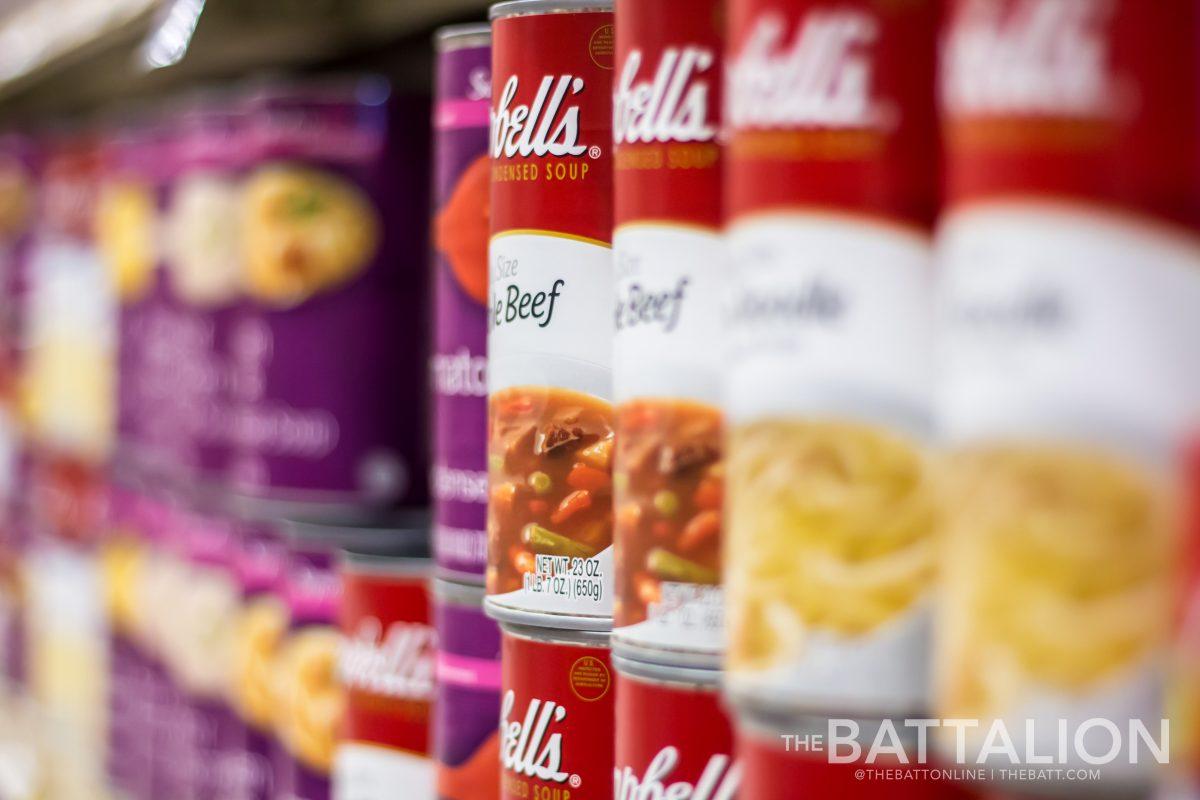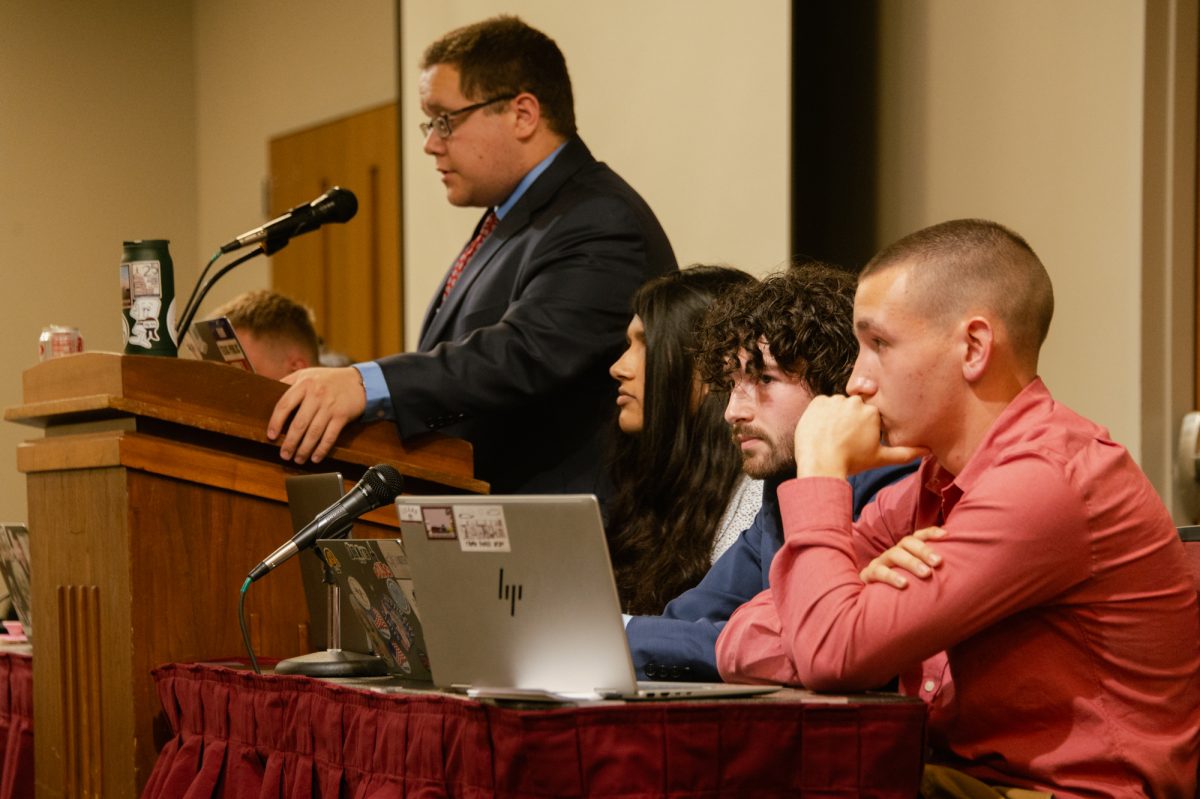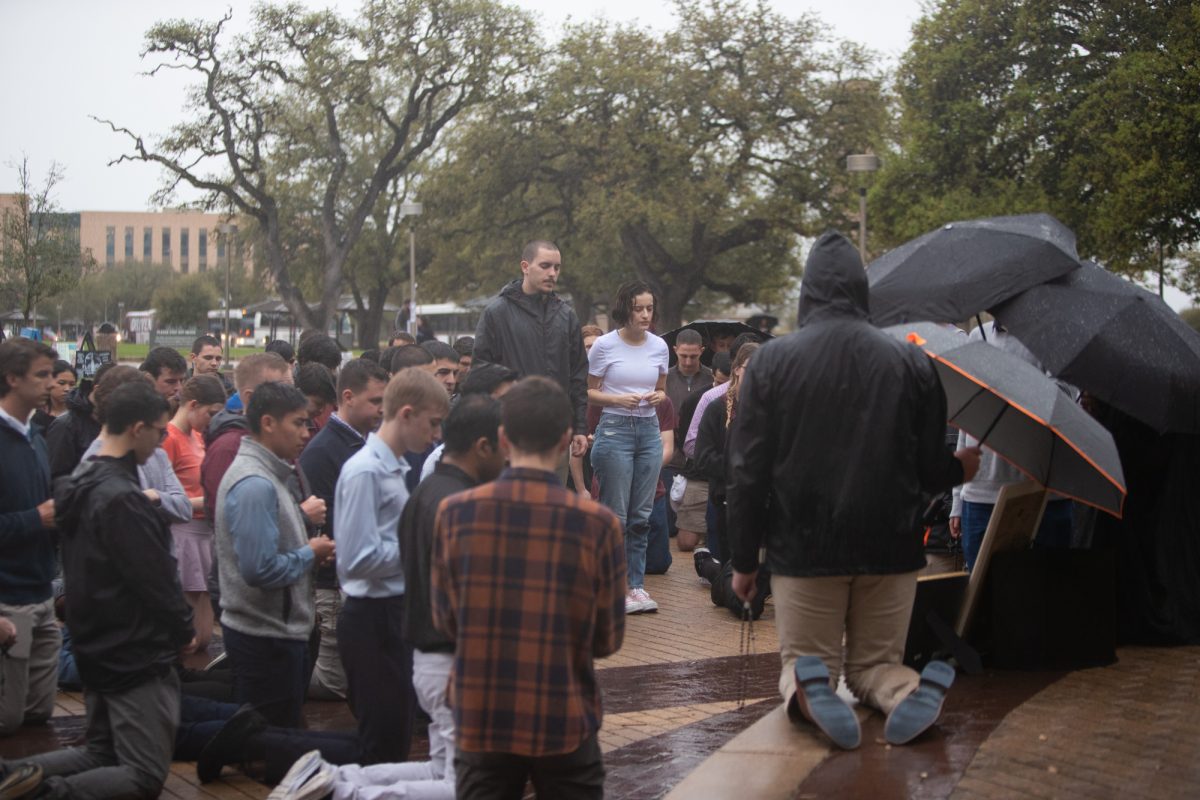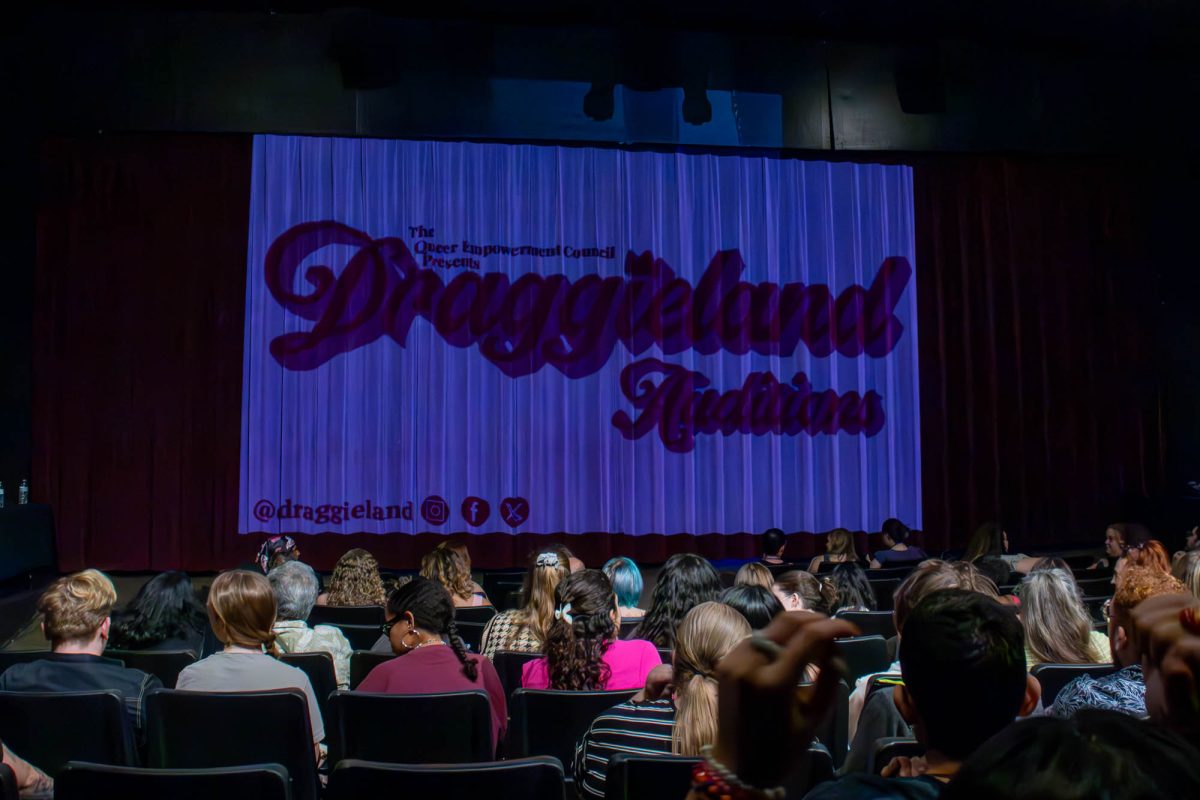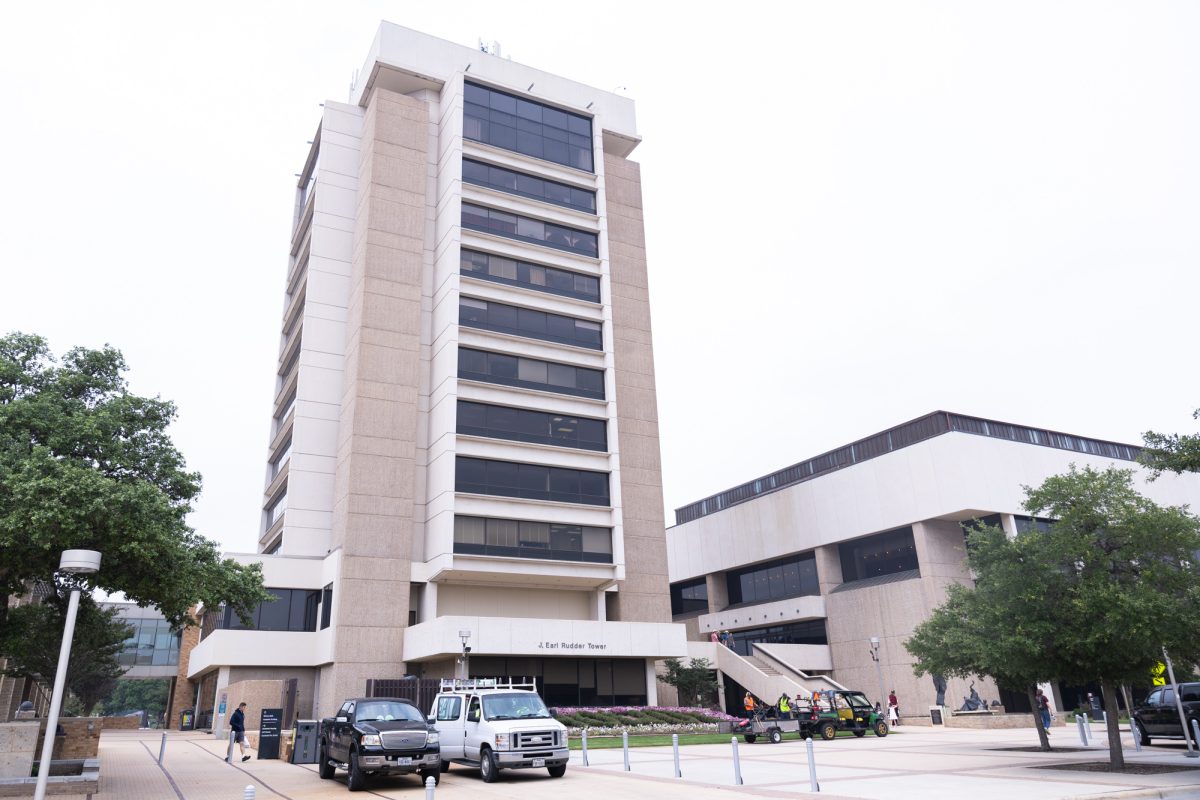Food insecurity in Brazos County is statistically higher than the rest of Texas, which opens doors for research by students at Texas A&M.
“Overchurched, Underfed” is a research project under the Aggie Research Scholars Program which seeks to examine the impact of religion on food provision in Brazos County. The project has been ongoing since the spring of 2017 and currently consists of a team of eight undergraduate students led by Andrew McNeely, sociology Ph.D. student. The team partakes in participant observation work at five food banks in Brazos County.
According to McNeely, Brazos County has a 22 percent food insecurity rate — significantly higher than the rest of Texas, which averages only 15 percent. He said Brazos County also has a high concentration of religious congregations, around 200, all concentrated within ten kilometers of Texas Avenue and University Drive.
“This is super interesting,” McNeely said. “If we can reasonably assume that all of these different religious groups have some kind of mandate to feed the hungry, why do we have so many hungry people in this county?”
These statistics became the initial start of the research, but McNeely said the number of religious bodies in an area has nothing to do with the number of food insecure people in an area.
“There’s something else going on, and that’s what the rest of the project is all about,” McNeely said. “Being involved with these food pantries and actually going to them, doing what’s called participant observation work, and collecting information, collecting our observations and analyzing them in a broad sweep rather than just with statistical information.”
The team began by examining how many religious groups are involved with programs that feed people. They found that only 40 religious groups are actively involved, and there are only nine agencies actually providing food. McNeely said this is because most groups are involved with something called a parachurch, which is an entity that involves cooperating religious organizations across denominations.
“This whole area has an interesting religious and social sort of equation going on, and that’s what we are trying to investigate and unravel,” McNeely said.
Sociological research is unique to other sciences, said McKenzie Horwitz, Class of 2017 and a previous team member on the project.
“We don’t really go into an environment with a hypothesis — with a direct relationship that we’re trying to prove or disprove,” Horwitz said. “We are kind of just describing an environment and trying to draw out theory and make observations from it.”
This project also has a significant impact on undergraduates who participate, such as Sarah McKeen, political science and sociology junior.
“I picked up a sociology major because of the project,” McKeen said. “It’s my favorite thing that I’ve done while an undergrad.”
Being involved in a research project that addresses an issue such as food insecurity and also allows community engagement, is an aspect Horwitz said she likes.
“As students at Texas A&M, we kind of have our bubble on campus and we forget that we’re a part of a larger community, so it’s kind of a good way to get insight into the broader community and understand the challenges people face in Bryan-College Station beyond the student body,” Horwitz said.
The research project is a form of service learning, which means the things researchers are learning about food insecurity are used to help wherever they can, according to McNeely.
Horwitz said a lot of students aren’t aware of the fact food insecurity can affect college students as well as members of the Bryan-College Station community.
“I will say that conducting studies like this, that do have that focus, are really important for visibility,” Horwitz said. “Visibility is a really essential first step to addressing big issues like food insecurity.”
Participant research work tackles issue of food insecurity
March 4, 2018
Photo by Photo by Casey Dawson
Aggie Research Scholars Program investigated the relationship between religious groups and the food insecurity rate.
0
Donate to The Battalion
$2065
$5000
Contributed
Our Goal
Your donation will support the student journalists of Texas A&M University - College Station. Your contribution will allow us to purchase equipment and cover our annual website hosting costs, in addition to paying freelance staffers for their work, travel costs for coverage and more!
More to Discover




